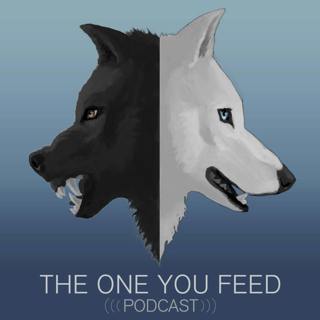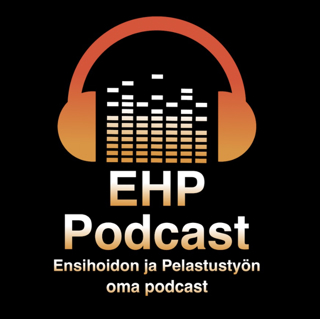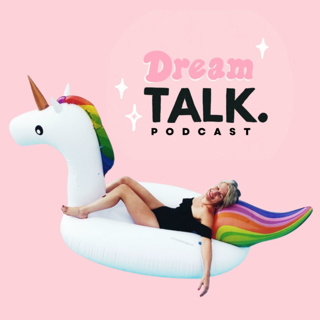
Lisa Feldman Barrett: A Conversation about How Our Emotions, Like Depression, Are Constructed in Our Brain
Have you ever wondered how emotions are made in our brains? This conversation with Lisa Feldman Barrett will explain this and more and as a result, you will be astounded. Full of scientifically backed concepts that you've probably never heard before, your view on how your brain manages how you feel at any given moment will be totally changed after hearing what this author and researcher has to say. This week we talk to Lisa Feldman Barrett Lisa Feldman Barrett, PhD, is a University Distinguished Professor of Psychology at Northeastern University, with appointments at Harvard Medical School and Massachusetts General Hospital. In addition to the book How Emotions are Made: The Secret Life of the Brain, Dr. Barrett has published over 200 peer-reviewed, scientific papers appearing in Science, Nature Neuroscience, and other top journals in psychology and cognitive neuroscience, as well as six academic volumes published by Guilford Press. Dr. Barrett received a National Institutes of Health Director’s Pioneer Award for her revolutionary research on emotion in the brain. These highly competitive, multi-million dollar awards are given to scientists of exceptional creativity who are expected to transform biomedical and behavioral research. Among her many accomplishments, Dr. Barrett has testified before Congress, presented her research to the FBI, consulted to the National Cancer Institute, appeared on Through The Wormhole with Morgan Freeman, and been a featured guest on public television and worldwide radio programs. She is also an elected fellow of Canada’s most prestigious national organization of scholars, the Royal Society of Canada (analogous to the National Academy in the United States). In This Interview, Lisa Feldman Barrett and I Discuss... The Wolf Parable Her book, How Emotions Are Made: The Secret Life of the Brain The myth of the lizard brain Emotions don't live anywhere in the brain Neurons being multi purpose The idea of degeneracy How complex emotions are Multi purpose ingredients in your brain (like in recipes) Our brains predict, rather than react, to the next immediate moment (those are our emotions and subsequent actions) Confirming or Correcting those guesses (or concepts) based on your past experiences How this process is your brain is trying to make sense of the sensory input of your body in the world How it's more efficient to guess in advance and correct in response than it is to react The importance of keeping your body's energy budget in balance We see the world as we believe it to be, through our concepts Interoception - feedback from your body on how it's systems are working Your brain is trying to anticipate what your body is going to need and then provide what's necessary to meet those needs before they arise Tragic Embodiment Most of the time you don't feel sensations from your body in a very precise way and if you do, you feel them in simple terms - "affect" More intense sensations are used to make emotions whereas less intense ones are used to make thoughts and other things How illness is an imbalance in systems in your body and how we experience it How basic body sensations are the cause of our emotions and how we feel How every waking moment of your life is simultaneously physical and mental When your body budget is out of balance/disrupted, you will feel distressed Reframing the feeling of anxiety as "preparing for something tough" and this is a good sign that your body is preparing for something tough Take care of yourself and your body to feel better (sleep, eat, nutrition) Understanding emotion and being more granular in our description is helpful because we better know what to do or not to do about it When you're depressed or anxious, the distress is not helpful if you personalize it Please Support The Show with a DonationSee omnystudio.com/listener for privacy information. See Privacy Policy at https://art19.com/privacy and California Privacy Notice at https://art19.com/privacy#do-not-sell-my-info. Learn more about your ad choices. Visit megaphone.fm/adchoices
30 Elo 201753min

Sean Carroll: Theoretical Physics and the Meaning of Life
Think theoretical physics is irrelevant to your everyday life and way over your head? You'll think differently after listening to this interview with Sean Carroll, theoretical physicist, poetic naturalist, and author.The meaning of life, the finitude of life, the choices we make and our experience of happiness and suffering all have a connection back to the scientific realm that will both fascinate and provoke thought in you. This week we talk to Sean Carroll Sean Carroll is a theoretical physicist at the California Institute of Technology. He received his Ph.D. in 1993 from Harvard University. His research focuses on fundamental physics and cosmology, especially issues of dark matter, dark energy, spacetime symmetries, and the origin of the universe. Recently, Carroll has worked on the foundations of quantum mechanics, the arrow of time, and the emergence of complexity. Carroll is the author of The Particle at the End of the Universe and From Eternity to Here: The Quest for the Ultimate Theory of Time, He has been awarded prizes and fellowships by the National Science Foundation, NASA, the Sloan Foundation, the Packard Foundation, the American Physical Society, the American Institute of Physics, and the Royal Society of London. He has appeared on TV shows such as The Colbert Report, PBS's NOVA, and Through the Wormhole with Morgan Freeman, and frequently serves as a science consultant for film and television. His latest book is called: The Big Picture: On the Origins of Life, Meaning, and the Universe Itself In This Interview, Sean Carroll and I Discuss... The Wolf Parable His book, The Big Picture; On the Origins of Life, Meaning and the Universe Itself That who we become is a combination of the choices we make and what the Universe gives us The philosophy of Poetic Naturalism - 1 world, many ways of talking about it 3 Levels of Stories: Fundamental, Emergent, Comprehensive What it means to be real You can't make "ought" out of "is" That facts and moral values are different things His perspective on life mattering - that it comes from within, that it's not imposed on us from the outside The fact that we care is the origin of things mattering in this life and world Life is a process, it's something that's happening - always moving and changing - and that there's always something else that we want How his book lays out the design for you to decide how to live your life and what kind of person you want to be The mistake of fetishizing happiness How you cannot separate happiness and suffering in life - especially a life well lived That our goal shouldn't be to reach some state of happiness and stay there because life is a dynamic process and it doesn't work like that The finitude of life The average human lives for three billion heartbeats That the difference between right and wrong is up to us to decide and that can be scary That the world - including us - is only really made up of 3 basic particles and 3 basic forces That the big bang isn't necessarily the beginning of the universe but it's as far back as we can go Physics books for the non-science people - look for books by either Brian Greene or Lisa Randall Life's Ratchet by Peter Hoffman is another interesting book for a non-science person Please Support The Show with a DonationSee omnystudio.com/listener for privacy information. See Privacy Policy at https://art19.com/privacy and California Privacy Notice at https://art19.com/privacy#do-not-sell-my-info. Learn more about your ad choices. Visit megaphone.fm/adchoices
22 Elo 201757min

Spring Washam: Meditation, Ayahuasca, Trauma and Depression
This week we talk to Spring Washam Spring Washam is a well-known meditation and dharma teacher based in Oakland, California. She is a founding member and core teacher at the East Bay Meditation Center located in downtown Oakland. She is the founder of Lotus Vine Journeys an organization that blends indigenous healing practices with Buddhist wisdom. In addition to being a teacher, she is also a healer, facilitator, spiritual activist, and writer. Her upcoming book entitled, A Fierce Heart: Finding Strength, Courage, and Wisdom in Any Moment, will be available in stores on November 7th, 2017. She has studied numerous meditation practices and Buddhist philosophy since 1997. She has practiced and studied under some of the most preeminent meditation masters in both the Theravada and Tibetan schools of Buddhism. She has studied indigenous healing practices and works with students individually from around the world. She has completed a six -year teacher-training program under the guidance of Jack Kornfield and is now on the teacher’s council at Spirit Rock Meditation Center in Woodacre, California. Spring is considered a pioneer in bringing mindfulness based healing practices into diverse communities and is committed to enriching the lives of disenfranchised people everywhere. She currently travels and teaches workshops, classes, and retreats worldwide. In This Interview, Spring Washam and I Discuss... The Wolf Parable His book, A Fierce Heart: Finding Strength, Courage, and Wisdom in Any Moment How she became a meditation teacher How self-compassion is at the heart of Buddhist teachings How being with ourselves in difficult times is an act of mercy How a synonym for mindfulness is remembering How we are always trying to change consciousness Her controversial Peru ayahuasca retreats How meditation and mindfulness was not enough to deal with her trauma Her first ayahuasca ceremony What ayahuasca is The risks of using entheogens The debate in the Buddhist community about this approach Whether you need to go to the jungle for this How we often need multiple approaches to healing ourselves How feeling like you are innately good changes the whole path Please Support The Show with a DonationSee omnystudio.com/listener for privacy information. See Privacy Policy at https://art19.com/privacy and California Privacy Notice at https://art19.com/privacy#do-not-sell-my-info. Learn more about your ad choices. Visit megaphone.fm/adchoices
16 Elo 201751min

Bonus: Eric Interviewed on Awesome at Your Job Podcast
Eric is interviewed on Awesome at Your Job podcast. Lot's of the key ideas from the show are discussed here.See omnystudio.com/listener for privacy information. See Privacy Policy at https://art19.com/privacy and California Privacy Notice at https://art19.com/privacy#do-not-sell-my-info. Learn more about your ad choices. Visit megaphone.fm/adchoices
13 Elo 201739min

Akshay Nanavati- Fear and Depression
This week we talk to Akshay Nanavati After overcoming drug addiction, alcoholism, PTSD from fighting the war in Iraq and recovering from the brink of suicide, Akshay Nanavati has since explored the most hostile environments on the planet and built a business helping people live limitless lifestyles. Combining his life experience with years of research in science and spirituality, he wrote a book called “Fearvana: The Revolutionary Science of How to Turn Fear Into Health, Wealth and Happiness.” Of the book, The Dalai Lama said “Fearvana inspires us to look beyond our own agonizing experiences and find the positive side of our lives.” In This Interview, Akshay Nanavati and I Discuss... The Wolf Parable His book, Fearvana: The revolutionary science of how to turn fear into health, wealth, and happiness How he got the Dali Lama to write the forward for his book That we don't control what first shows up in our brain How if you feel fear and stress is not your fault The second dart/arrow parable Acting your way into right thinking literally restructures the pathways in your brain The ability to develop a positive relationship to suffering Committing yourself to the worthy struggle Reducing life to the simplest next step Dealing with fear - it's ok to be scared Bringing the rational mind into fearful situations The challenge response Fear is a gift if you believe it to be The growth mindset vs The fixed mindset If you want to be great you have to believe that you are How ego can be both helpful and unhelpful The worthy struggle Keeping things automated in your day so that you can save self-discipline or willpower for the times you need it Please Support The Show with a DonationSee omnystudio.com/listener for privacy information. See Privacy Policy at https://art19.com/privacy and California Privacy Notice at https://art19.com/privacy#do-not-sell-my-info. Learn more about your ad choices. Visit megaphone.fm/adchoices
8 Elo 201743min

Eric Barker: Success and Happiness
This week we talk to Eric Barker Eric is a thought leader in the field of success. His humorous but practical blog, Barking up the Wrong Tree, presents science-based answers and expert insight on success in life. Over 270,000 people subscribe to his weekly email update and his content is syndicated by Time, The Week, and Business Insider. He has been featured in the New York Times, the Wall Street Journal, the Financial Times, and he was a columnist for Wired. With a writing career spanning over twenty years, Eric is also a sought-after speaker and interview subject and has been invited to speak at MIT, West Point, NPR affiliates, and on morning television. His first book, Barking Up the Wrong Tree: The Surprising Science Behind Why Everything You Know About Success Is (Mostly) Wrong is available now. In This Interview, Eric Barker and I Discuss... His book, Barking Up the Wrong Tree: The Surprising Science Behind Why Everything You Know About Success Is (Mostly) Wrong How he defines success Achievement, Happiness, Significance, Legacy The dangers of only using one metric for happiness How money is a lever to something else that makes you happy rather than the thing that makes you happy in and of itself There's no finish line in the quest of what makes me feel good We must decide what is "enough" New and novel make our brains happy We must decide what really is going to make us happy in the long run Turning what we do in our lives into games can be helpful in increasing our persistence and grit Games have these attributes: Winnable, Novelty, Goals, Instantaneous Feedback A feeling of progress and meaningful work keeps us engaged Challenging yourself in a familiar task True burnout is when you start to feel pessimistic about your job so you withdraw and then you get poor feedback so you finally disengage Autonomy, Mastery and Purpose A change is as good as a rest That we are telling ourselves stories about what's has meaning and what doesn't How telling your children about their lineage will increase the likelihood they stay away from drugs, stay in school etc Therapy as editing the story we're telling about our lives Cognitive reappraisal The role of positive self-talk I can do it vs I can't take this anymore If you break your arm you wouldn't say "I am broken" you'd say "My arm is broken" Listening to our thoughts from a distance and asking "is this useful?" to be more mindful about what thoughts we identify with We don't choose what makes us happy, we choose what's easy The role of a plan How anticipation is happiness Please Support The Show with a Donation m is a good wolf which represents things like kindness, bravery and love. The other is a bad wolf, which represents things like greed, hatred and fear. The grandson stops and thinks about it for a second then he looks up at his grandfather and says, “Grandfather, which one wins?” The grandfather quietly replies, the one you feed The Tale of Two Wolves is often attributed to the Cherokee indians but there seems to be no real proof of this. It has also been attributed to evangelical preacher Billy Graham and Irish Playwright George Bernard Shaw. It appears no one knows for sure but this does not diminish the power of the parable. This parable goes by many names including: The Tale of Two Wolves The Parable of the Two Wolves Two Wolves Which Wolf Do You Feed Which Wolf are You Feeding Which Wolf Will You Feed It also often features different animals, mainly two dogs.See omnystudio.com/listener for privacy information. See Privacy Policy at https://art19.com/privacy and California Privacy Notice at https://art19.com/privacy#do-not-sell-my-info. Learn more about your ad choices. Visit megaphone.fm/adchoices
1 Elo 201751min

Gregg Krech: Procrastination, Taking Action and Mindfulness
This week we talk to Gregg Krech GREGG KRECH is an author, poet, and one of the leading authorities on Japanese Psychology in North America. His work has been featured in THE SUN magazine, Tricycle, SELF, Utne Reader, Counseling Today, Cosmopolitan and Experience Life. His books include Naikan: Gratitude, Grace, and the Japanese Art of Self-Reflection, A Natural Approach to Mental Wellness, and The Art of Taking Action. His newest book, Question Your Life, will be available soon. Gregg and his wife, Linda, founded the ToDo Institute (http://www.todoinstitute.org), a non-profit center in Vermont that uses Japanese Psychology as an alternative to traditional Western approaches to psychology. Over the past 25 years, Gregg has introduced Japanese Psychology, particularly Naikan Therapy, Morita Therapy and Kaizen, to thousands of people through his workshops and online courses. His work supports a blend of the psychological, the spiritual and the practical, and helps individuals to clarify purpose, cultivate gratitude, develop compassion and engage in meaningful action. He is a member of the North American Naikan Counsel and Editor in Chief for the quarterly journal "Thirty Thousand Days: A Journal for Purposeful Living. In This Interview, Gregg Krech and I Discuss... The Wolf Parable His book, The Art of Taking Actions: Lessons from Japanese Psychology How Eastern wisdom is directed towards taking action, as well as contemplation Taking your practice off your cushion The misguided premise that we have to figure things out in our life before we can act The power of momentum in action when small steps are taken Cultivating gratitude Avoidance, resignation, complaining How accepting things as they are isn't necessarily passive That complaining keeps us stuck in focusing on the trouble in our lives The overlap between ACT and Japenese Therapy Feelings and thoughts are uncontrollable by our will Allowing feelings to be what they are but not letting them inhibit our ability to move forward and take action Taking action based on the needs of the situation rather than just on the feelings we have How essential it is to step back from our lives and reflect and then make choices on how you need to move forward How most of the time we do not feel like doing the things that need to be done Exercise being an example! The maxim: Lead with the body How if you don't feel like something now, you're probably never really going to want to do it so get it done now That the anticipation is often worse than the consummation His next book that focuses on self-reflection Please Support The Show with a DonationSee omnystudio.com/listener for privacy information. See Privacy Policy at https://art19.com/privacy and California Privacy Notice at https://art19.com/privacy#do-not-sell-my-info. Learn more about your ad choices. Visit megaphone.fm/adchoices
26 Heinä 201741min

Matthew Quick 3rd Time: Mental Health, Alcohol, Anxiety and Getting Healthy
Please Support The Show With a Donation This week we talk to Matthew Quick Matthew Quick is the New York Times bestselling author of The Silver Linings Playbook, which was made into an Oscar-winning film; The Good Luck of Right Now; Love May Fail; The Reason You Are Alive; and four young adult novels: Sorta Like a Rock Star; Boy21; Forgive Me Leonard Peacock; and Every Exquisite Thing. His work has been translated into more than thirty languages, received a PEN/Hemingway Award Honorable Mention, was an LA Times Book Prize finalist, a New York Times Book Review Editors’ Choice, a #1 bestseller in Brazil, a Deutscher Jugendliteratur Preis 2016 (German Youth Literature Prize) nominee, and selected by Nancy Pearl as one of Summer’s Best Books for NPR. The Hollywood Reporter has named him one of Hollywood’s 25 Most Powerful Authors. All of his books have been optioned for film. In This Interview, Matthew Quick and I Discuss... The Wolf Parable His new book, The Reason You're Alive ICATS - what it means and why limiting it in your life is helpful to anxiety How public speaking causes him to have anxiety His calming practices to manage his anxiety Why dismissing whole groups of people is a mistake The importance and benefit of meeting people who are different than you Comfort the Disturbed and Disturb the Comforted Generational tendencies in worldviews The damage that's done when we shame others about their thoughts The relationship between anger and fear How silencing people is un-American and frustrating The transparency of the main character in his new book Humor is experiencing the unexpected Laughing and Crying give relief to tension The major life changes he has made over the past 3 years and their impact Believing he couldn't function without alcohol and Rxs The long-term benefit of passing on some forms of short term relief The power of the past to continue to live on Every experience leaves an impact on you and affects the rest of your life The power of focusing on process and not result Please Support The Show with a DonationSee omnystudio.com/listener for privacy information. See Privacy Policy at https://art19.com/privacy and California Privacy Notice at https://art19.com/privacy#do-not-sell-my-info. Learn more about your ad choices. Visit megaphone.fm/adchoices
18 Heinä 201756min





















